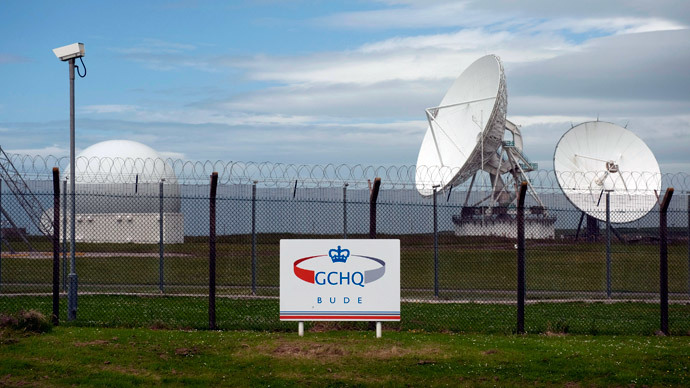British intelligence is permitted to go further in surveillance than similar agencies in other Western countries, according to former NSA contractor Edward Snowden, who spoke of GCHQ’s lack of oversight in a recent interview to the Guardian.
Snowden's life in Russia: ‘Much happier than be
unfairly tried in US’
Snowden believes the powers of the British intelligence are not
restricted effectively enough by “law or policy”. Despite the UK
government publicly claiming that regulations over the spy
activity are strict, GCHQ’s private documents suggest the
opposite is true.
“You’ve got their own admission in their own documents that
‘we’ve got a much lighter oversight regime than we should have,’
full stop,” Snowden said. “That’s what they’re talking
about. They enjoy authorities that they really shouldn’t be
entitled to.”
The lack of legal restrictions leads to UK intelligence being
able to target more people than is necessary.
“Tempora [GCHQ’s internet surveillance program] is really
proof … that GCHQ has much less-strict legal restrictions than
other Western government intelligence.”
Taking that into account, Snowden is sure the UK citizens could
be ones on whom intelligence techniques could be tested to then
be used by all of the other so-called Five Eyes partners –
Canada, the United States, Australia and New Zealand.

“And what that means is UK citizens and UK intelligence
platforms are used as a testing ground for all of the other Five
Eyes partners,” he said.
In May, a group of British MPs called for more accountability on
the part of the country’s intelligence. They said the
confidential files, leaked by Edward Snowden revealed the
“embarrassing” state of legal oversight into
the British surveillance system.
US knew about Snowden file destruction at UK
newspaper
Snowden recalled a raid on the Guardian’s offices a year ago to obtain
and destroyed hard drives with leaked files as another example of
the country’s intelligence going too far in its activity.
“It seemed like a clear intent to intimidate the press into
pulling back and not reporting,” Snowden said. “And I
think that was why it was inappropriate, but tremendously
beneficial for the public conversation because they gave everyone
who was concerned about the abuses of power a clear and specific
example.”
The raid was not only intimidating, but also “stupid”,
Snowden added, ridiculing the idea of someone trying to
“grind data out of existence when we have a global
interconnected internet.”

